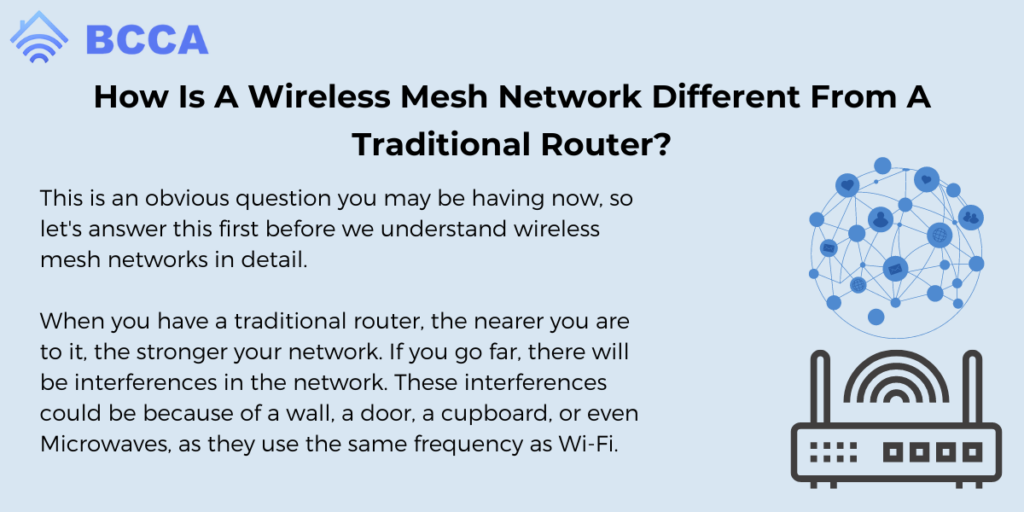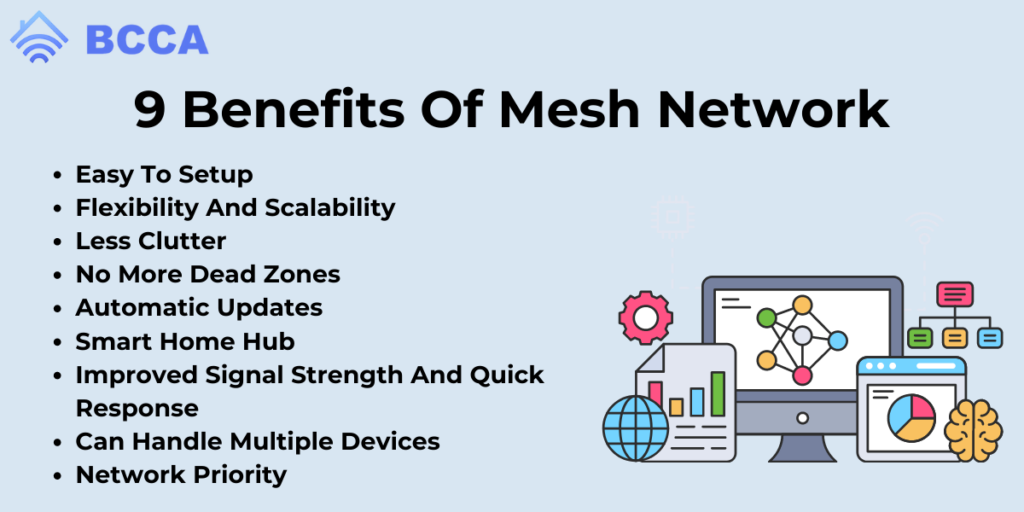Your network is the backbone of all your online activities. Without a stable connection, nothing can work properly. Video calls will freeze or get disconnected, YouTube will keep buffering, and your favorite shopping website will keep loading.
Have you made peace with frequent network issues at home or the workplace? Do you also have to sit near your router to get the best connection? Well, you will be happy to know you are not alone.
These days networks are overloaded as cloud applications are used in everything. Another reason for networks jam is the increasing number of mobile and IoT devices.
With home education and remote working becoming the new norm for many, Wi-Fi performance is more important now than ever.
Our routers have to take an increased load because of several devices, and thus, there are network issues. These issues may seem small but they can eat up a lot of your productive time and result in frustration of work not being done.
If you are facing similar problems, it is time to upgrade to a wireless mesh network.
Unsure of what a mesh network is or what benefits it offers? Let’s find out.
Table of Contents
How is a Wireless Mesh Network Different From a Traditional Router?

This is an obvious question you may be having now, so let’s answer this first before we understand wireless mesh networks in detail.
When you have a traditional router, the nearer you are to it, the stronger your network. If you go far, there will be interferences in the network. These interferences could be because of a wall, a door, a cupboard, or even Microwaves, as they use the same frequency as Wi-Fi.
As your router is the only source of your internet connection, when it is down, it brings down your entire network. This is where wireless mesh networks come to your rescue.
While traditional routers are centralized access points, mesh networks are decentralized. Instead of using a single router, a mesh network uses multiple nodes that are strategically placed in your home or office.
One node functions as the primary router and connects to the wireless gateway, and additional nodes share the Wi-Fi signals.
All the nodes in a mesh network communicate with each other and automatically diagnose latency issues. This helps in avoiding dead zones and lowers the risk of poor connectivity.
Now that you know what a wireless mesh network is, let’s look at some of its benefits.
9 Benefits Of Mesh Network

Mesh networks are used to extend the reach of your Wi-Fi network to a larger area. They are used to get stronger signals, faster internet, and blanket coverage. There are many benefits of installing a wireless mesh network, and the following are some of them:
Easy To Setup
Wi-Fi mesh system is easy to set up even for a non-tech-savvy person. Unlike a Wi-Fi router and extender, which is more technical, a mesh system just requires you to plug in nodes in the power sockets, and it is good to go.
A challenge that people may face could be where to plug in the primary router node. And the solution to this is to plug the primary node near the cable modem or existing router.
Most systems come with an app with user-friendly instructions on placing the nodes for better coverage. Moreover, you can manage the entire mesh system with this app.
Flexibility And Scalability
When you shift to a new place or renovate your home, some places may not get the proper network coverage as earlier. But, with a mesh system, all you have to do is place some additional nodes, and the network will be omnipresent.
When you have a bigger place, you just need to buy more nodes and place them in the regions you want connectivity.
Once you place them, connect them to the other nodes using the app, and they will be a part of your existing mesh network. All this without signing in any new SSIDs or passwords. You don’t even have to do any technical configuration.
Less Clutter
If you are minimalist and like to live clutter-free, mesh wireless systems are perfect for you. Traditional routers and modems have cables spread all over your homes or offices, but mesh network nodes are comparatively smaller and sleeker. Thus, making them a good choice for someone who likes to keep things discreet.
Some nodes are even wire-free, you just plug them in the sockets, and they work amazingly well.
No More Dead Zones
Mesh networks as we’ve already seen are ideal to spread the Wi-Fi network to every single corner of your home thereby eliminating dead zones. A large home may not benefit from the traditional router as it is not powerful enough to reach everywhere and thus causing network issues and dead spots.
On the other hand, mesh networks are known to reach distant and blocked places with their blanket coverage. Not only this, they can even penetrate barriers like walls, pillars, or doors and offer you clear signal all over.
Automatic Updates
With advances in technology, it is even more crucial to keep your network secure and safe from unauthorized attacks. Now that remote working has become a norm, people are more vulnerable to cyber security breaches. But, thanks to mesh networks, your network will be automatically updated, and you will be safe from any security threats.
Smart Home Hub
Some mesh systems can also double up as a smart home hub. This means they allow you to access the smart devices in your home through the app from which you manage your mesh network. Isn’t it wonderful?
When you add smart devices to your home, like smart speakers, thermostats, lighting, cameras, etc., you need a stronger signal in all areas of your home. You simply need to add more nodes to your existing system for these smart devices, and the mesh network will handle everything on its own.
You won’t even have to switch networks when you move about your house, as adding extra nodes does not create a new Wi-Fi network. So, this is ideal if you live in a multi-story home.
Improved Signal Strength And Quick Response
With a mesh network, you need not roam around the house to find the perfect spot with strong connectivity. As the nodes in the mesh system do not rely on a single point, they naturally provide a faster connection and strong signal.
As compared to a traditional router, the nodes communicate with each other and optimize the network coverage. They deliver signals through the access point that is nearer to the device.
Can Handle Multiple Devices
In the case of a traditional router, if more devices are used simultaneously, they cause latency issues. But, in the case of a mesh system, the devices will connect to their nearest node and will get the best coverage.
Not having one central point of access makes it easier for each device to have connectivity as it optimizes Wi-Fi resources. This can be good news for families where kids are indulging in video games, and others have to use the internet.
Additionally, it can help multiple people who are working from the same place as their bandwidth needs are higher than average homes.
Network Priority
Another great benefit of mesh wireless networks is that you can allow priority to specific nodes that are going to be in use. In a family that has a lot of members and thus multiple devices, it can be difficult to prioritize networks. But, a mesh system allows you to disable Wi-Fi for certain devices.
For example, if you have an important Skype call in the evening, you can give your smartphone or computer (wherever you will attend the call) network priority.
Is Mesh Network For Me?
Suppose you are the only person using the network in your home and want a stable connection. In that case, you can achieve this with a simple Ethernet cable and a traditional router. Wired connections are faster as compared to wireless ones if the connection is stable.
However, if you live in a large home and there are multiple people and devices that use the internet, a mesh wireless network can be a blessing for you.
You must decide if the overhaul of setting up an entire mesh network is worth it for you. They can help in boosting the Wi-Fi signal strength and eliminate dead spots in larger homes. But, unless you have multiple users in your home who are consistently using the internet, setting up a mesh system can prove to be expensive.
Summary
Finally, mesh wireless networks do have a lot of benefits and they can make your online life better. But not everyone needs them. So, it is essential to weigh the pros and cons. Moreover, you must assess your situation and then decide if mesh networks are for you or not.
Mesh networks can be an expensive investment but if there are many people who use the network in your home, it can be worth every penny. Also, it can spread the network to all corners of your home, putting an end to dead spots.
Once you get a hold of them, mesh networks are simple to work with and can give you the best network always.
Chris loves technology, specifically smart home technology! With both hands-on and executive leadership experience in his corporate career, Chris stays abreast of emerging technology and solutions and immerses himself in BCCA when not in the office.
